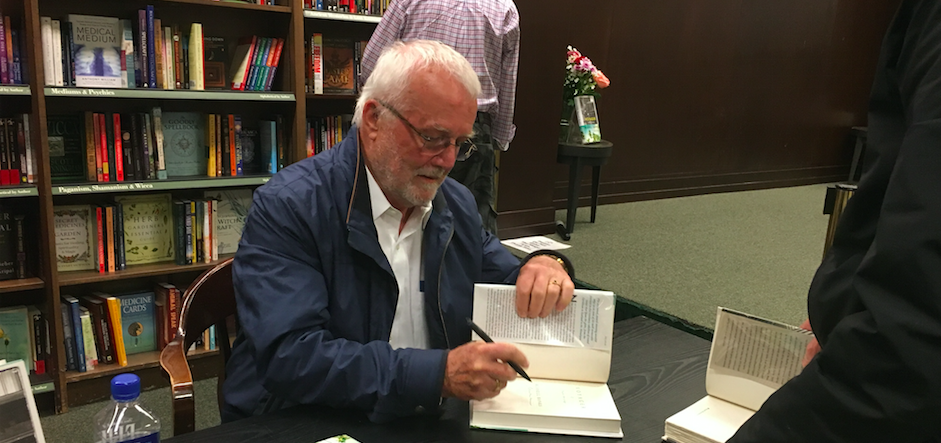Some wisdom from Russell Banks, the author of novels and the recent travel/memoir Voyager:
 Asked at a recent book signing how his writing process has evolved over the years, Banks took the Zen stance.
Asked at a recent book signing how his writing process has evolved over the years, Banks took the Zen stance.
When I was in my 20s and even 30s and even 40s, but most especially in those earlier years, I really had no idea what I was doing and that frightened me and intimidated me. Yet I kept going. It wasn’t until much later, in my 50s and 60s and now 70s, that I began to realize that that’s the whole idea–not knowing what you’re doing. And as I’ve gotten older it’s gotten more and more difficult not to know what I’m doing. And so I have to find ways to induce that condition where I really don’t know what the hell I’m doing. It came so natural to me when I was young. It’s something that I’ve become increasingly aware of. I can see myself coming and going and I have to find ways to trap myself into that state of mind [of unknowing].
Only by becoming unknowing, Banks said, can we really create something new. When you know anything–even technique–your sense of curiosity and wonder may atrophy. You can lose your attachment with the moment. You can lose your ability to see and feel and think with openness.
The “will to knowledge,” Nietzsche taught, is one of the great diseases of modernity. Living in the age of science and psychology and rationality, we moderns somehow believe that we have to have all the answers. We get anxious when we don’t have the answers. Too often, we force answers on ourselves and others, rather than dwelling in a more aware state of unknowing and curiosity.
When we know something–or think we know something–we hold fast to that knowledge. We cling to it.
What’s wrong with that? What’s wrong with being confident in our knowledge? Nothing really, as long as we’re loose with that confidence.
Attachment, the Buddha taught, is suffering. When we get attached to relationships, things, ideas, resentments, dreams, stories, rationalizations, myths, that’s when the suffering begins. And of course suffering narrows our minds.
That’s what Banks was talking about, I think. To create something, we need to have a sense of openness and curiosity, a sense of striving. Mastery is worthwhile. It’s great to have a toolbox and to know how to use the tools. But somehow, as Banks says, we have to find ways of being unknowing and unattached as well.
For more posts on writing, visit the Elements of Writing Blog. Check out the posts on Storytelling, Writing Mechanics, Analysis, and Writers on Writing.

